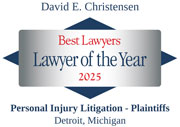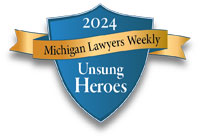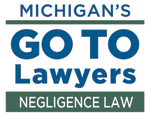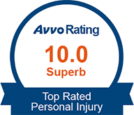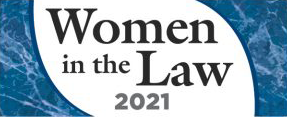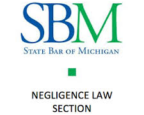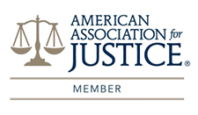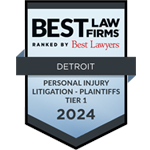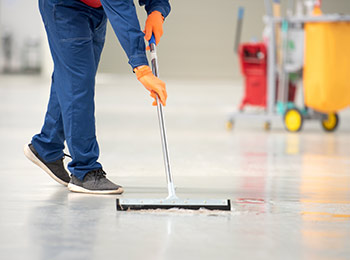
When you’re on someone else’s property, you assume that the owner or occupier of the property has kept the property reasonably safe for visitors. If you’ve been there before, it’s easy to assume that your grocery store, neighbor’s home, or public sidewalk will be perfectly safe.
When a property owner or business negligently allows dangerous or hazardous conditions to remain on the premises and a visitor to the property is injured by those conditions, that owner may be held responsible in a premises liability claim. They may owe significant financial compensation to the injured visitor for the economic and non-economic costs of their injuries.
If you were injured through the negligent actions or inactions of a property owner or operator, call our Michigan premises liability lawyers or fill out our online contact form to seek justice. You may be entitled to compensation for your medical costs, missed work, and pain and suffering.
How a Premises Liability Lawyer in Michigan Can Help You
Pursuing a premises liability action often becomes a complex matter. Property and business owners are likely to dispute whether their negligence caused the condition on the property that injured the visitor, whether the injured party bears fault for their own injuries, or whether the accident or incident even occurred.
If you have been injured by a dangerous or unsafe condition on somebody else’s property in Michigan, it may be a good idea to get a Michigan personal injury attorney in your corner now. It can be tricky to figure out just how much the other party owes you, but our lawyers will work towards getting you maximum compensation for your injuries and losses.
What Is Premises Liability?
Premises liability refers to any legal case in which a person is injured by an unsafe condition on someone else’s property due to the negligence of the owner, operator, or occupier of the premises.
Under Michigan premises liability law, property owners and occupiers are required to make reasonable efforts to maintain their premises in a safe condition for visitors. When they fail to do so, injured parties can initiate a premises liability claim if they get hurt.
Filing a civil claim for a premises liability accident in Michigan can recover compensation for the economic and non-economic losses you have suffered as a result of your injuries.
Changes to Michigan’s Premises Liability Laws: What it Means for Injury Victims
Michigan courts modified certain standards related to premises liability injury cases. In the past, if an unsafe condition was deemed “open and obvious” to a reasonably prudent person, property owners could avoid liability, even if they failed to remedy or warn about the hazard.
However, a 2023 Michigan Supreme Court decision now allows judges and juries greater discretion in determining if property owners bear any fault for the accident. If owners fail to uphold reasonable duties of safety and care in regard to dangers (even open and obvious risks), victims can potentially still pursue injury claims.
What does this mean for premises liability accident victims? It means you could face fewer roadblocks in pursuing legal action, even if the dangerous conditions on the property were visible but were still unaddressed. The updated interpretation of Michigan’s premises liability laws makes owners more accountable for foreseeable risks that harm visitors to their property.
Compensation You Can Get in a Michigan Premises Liability Claim
If you have suffered serious injuries due to a dangerous condition on someone else’s property, you may be entitled to seek compensation for the losses you’ve suffered as a result of your injuries. You may be owed compensation for:
- Medical expenses, including surgery, other medical procedures, prescription medications, physical or occupational therapy, mobility assistive devices, and other medical equipment
- Costs of personal care, such as home alterations to accommodate disabilities, home health care, and household services
- Lost wages, if you missed time from work while recovering from your injuries
- Lost earning potential, if you cannot return to your old job or are disabled from any form of employment
- Pain and suffering, including the physical and emotional anguish you suffered as a result of your injuries
- Lost quality or enjoyment of life caused by disabilities or disfigurements
- Loss of consortium, or compensation for your spouse for the loss of your companionship and services
- You may also be entitled to seek compensation for any property damage you suffered.
What Do You Have to Prove in a Premises Liability Case?
What you need to prove in your premises liability case may depend on your status while visiting the property where your injury occurred. Michigan law recognizes three different statuses for visitors to property:
- Invitee – This is someone with permission to be on the property. Invitees are frequently a business’s customers. Property and business owners owe invitees a duty to warn of dangerous or hazardous conditions on the premises and take reasonable steps to inspect the premises and to remedy or repair hazards or to warn of their presence.
- Licensee – This is someone with permission to be on the property and who’s there for the licensee’s own benefit. Social guests and salesmen are examples of licensees. Property and business owners only owe licensees a duty to warn them of dangerous or hazardous conditions on the property.
- Trespasser – Property and business owners only owe trespassers a duty to refrain from willfully inflicting injury upon them. They usually are not liable for any injury caused by a dangerous condition not put there by the property or business owner for the purpose of trapping or injuring trespassers. The situation may be different if the injured trespasser is a child.
Generally, property and business owners are expected to keep their premises reasonably safe. This requires making reasonable efforts to inspect the premises regularly so that they discover dangerous or hazardous conditions. Property managers should repair or remove those conditions or warn visitors of their presence.
Get a Free Consultation With a Michigan Premises Liability Lawyer
Schedule a free, no-obligation consultation with a Michigan premises liability attorney from Christensen Law today to discuss your rights and legal choices. Our compassionate staff is here to help you move forward from this stressful incident. If you didn’t cause your injuries, you should not have to pay for the damages. We will fight for you.
Call us at today or contact us online to learn more about how we can protect your right to compensation. We will be the advocates you can count on throughout each stage of your claim.



